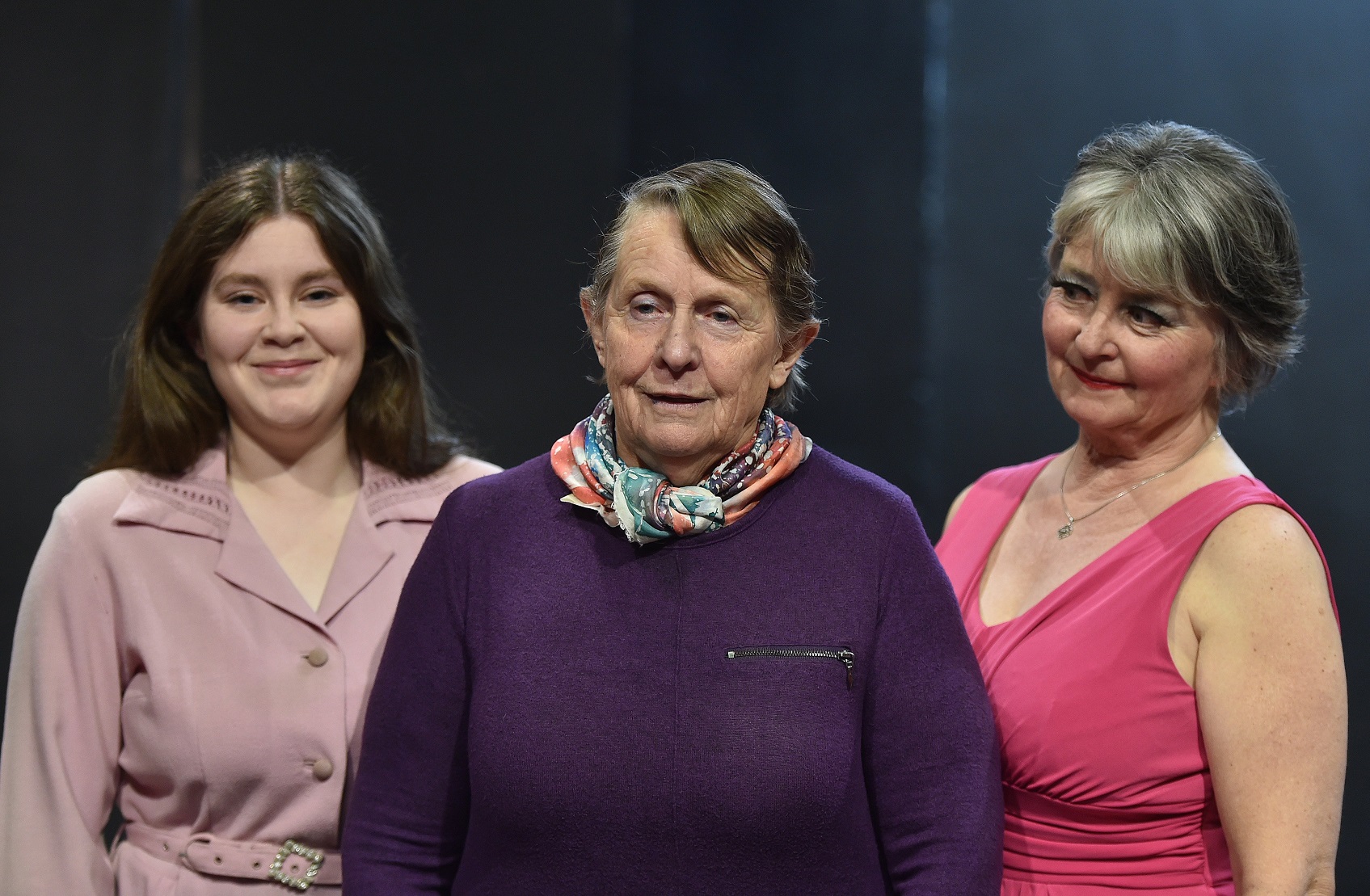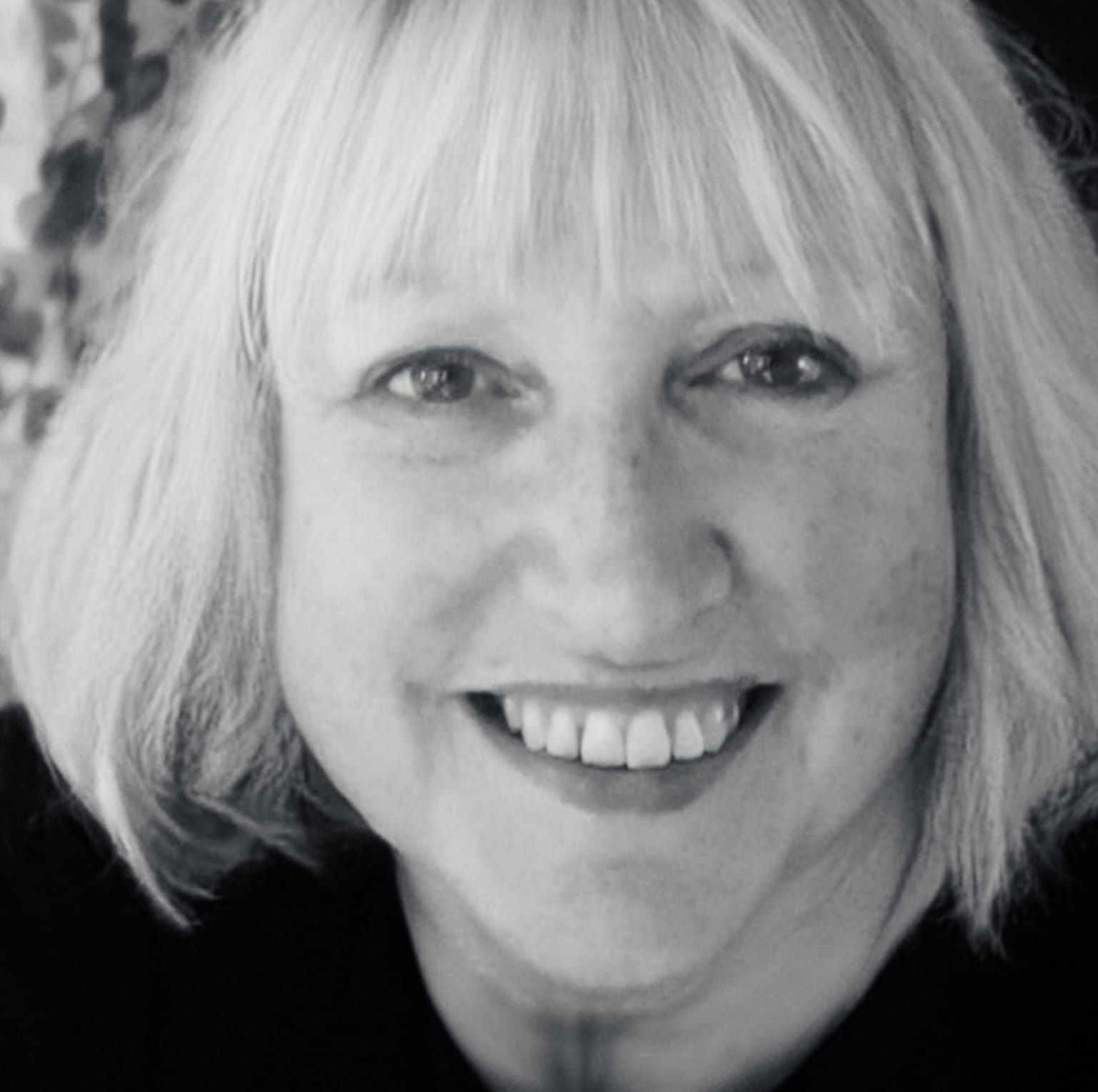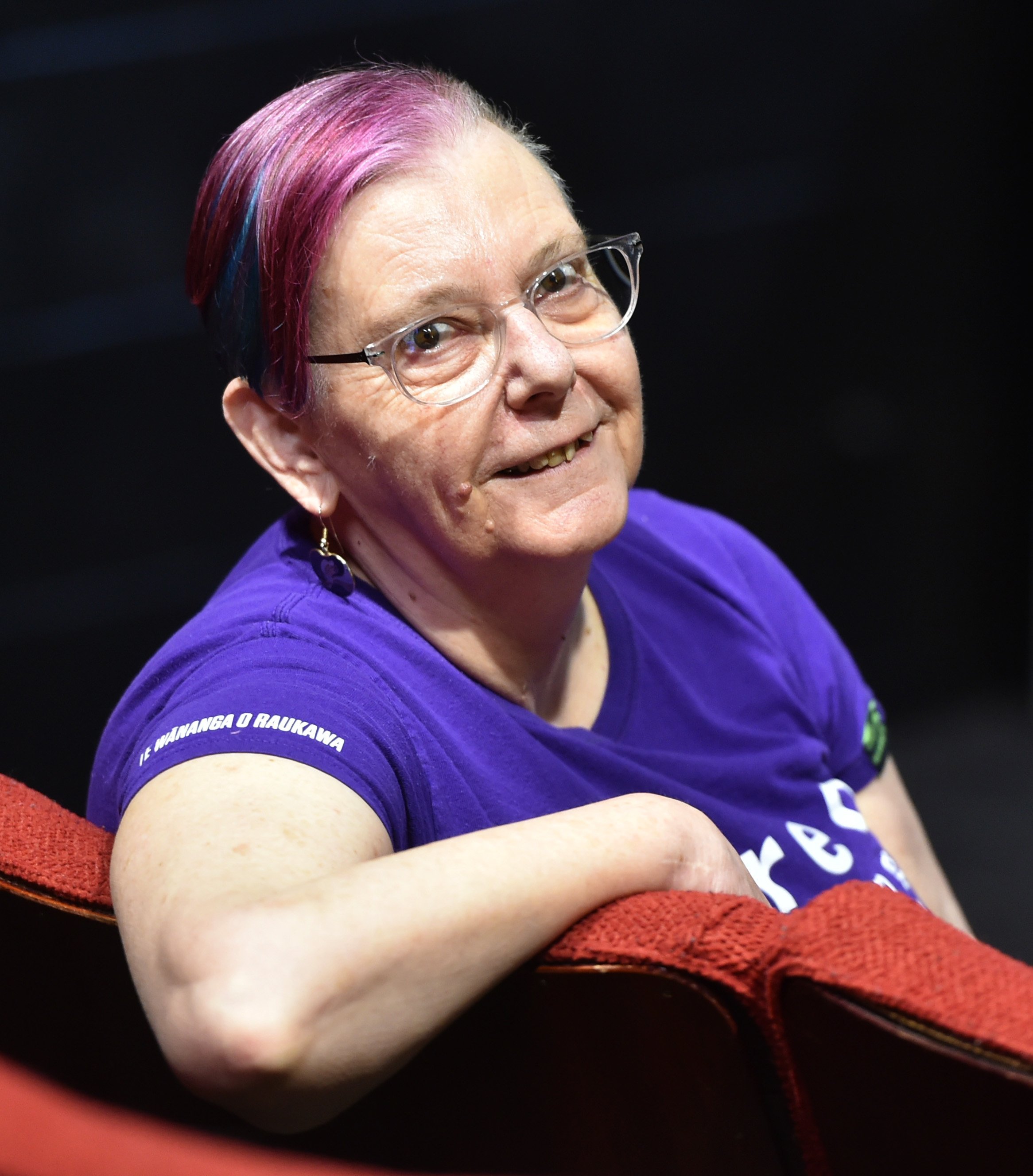
Gail Young has never shied away from the hard stuff.
Cancer, Alzheimer’s, divorce and the impact of World War 2 have all been fodder for the playwright’s grist, even though some might find it distasteful.
"They said to me it was a bit of a dark subject. No-one’s going to come and see that."
For Young, writing about topics that shine a light on issues that affect a lot of people and help raise awareness is just as important at the entertainment values.
"If it’s got pain and humour in it, I think it’s great if you can combine some sort of artistic effort with with something that’s really tangible in terms of the public good."
Young was in her 50s when she wrote her first play, Cheshire Cats, after her friends encouraged her to write about the incredibly popular London night-time Moonwalk, which fundraises for breast cancer.
"Women wear ridiculous bras and walk through the streets of London to raise money for breast cancer research. And I did that with a gang of friends because my mum had had breast cancer, as had a good friend, and also my sister-in-law.
"It’s a riot. There’s thousands of women, so it’s very funny as well as being very poignant."
Having been involved in amateur dramatics in acting and directing over the years, Young could see its potential as a play. And even though all she had previously written were reports for work in human relations and training, she gave it a go.
"It wasn’t hard to write a comedic play about it, but also a play that made a point about certain things. It’s got a serious subject, but it’s written in a funny way and that's been used as a vehicle for raising funds for breast cancer research, things like that."
She put its success down to being a massive reader and a keen theatre-goer who likes reading plays.
"It’s a bit like osmosis, isn’t it?"
When the Moonwalk went to Edinburgh the following year, she was encouraged to put the play into the Edinburgh Fringe Festival. She sold enough tickets to advertise the show as a sell-out.
It took another five or six years for a publisher to get on board but when it happened, the play went on to be produced in Britain and overseas.
So when she wrote her next play, Bothered and Bewildered, it was snapped up immediately, despite being about another difficult topic — Alzheimer’s.
Young’s father-in-law Walter suffered from the disease and while she could see the dramatic potential, it was too close to home to write about.
"It’s very distressing for everybody."
However, when a colleague was going through a similar experience with her mother, she asked if she could interview them about their experiences.
"They were going through the mill. But the lightbulb moment for me in terms of trying to inject some humour into it was when they were talking about their mum.
"It was either very poignant or sad or they were telling me really funny things that had happened as a result of it. And they were laughing.
"So I gleaned a lot from that."
She also discovered that before her colleague’s mother had Alzheimer’s, she was a great reader and enjoyed a lot of romantic fiction.
"I immediately thought of Barbara Cartland because she’s this huge figure but no, she hated Barbara Cartland. She loved Mills and Boon."

"I thought for the purposes of the play, because their mum was someone who did talk to people that no-one else could see, that it would be Barbara Cartland.
"Which meant that you could get quite a lot of humour in because Barbara Cartland was always writing about virgins and men in uniform and all that sort of thing."
The one thing Young did not want was for the play to become too dark or depressing.
"The lovely thing about being able to use that big character was she gave the audience permission to laugh."
So a lot of people go away from seeing the play pleasantly surprised by how entertaining it is even if at first thinking it was "distasteful", she said.
"You do laugh but you cry as well."
Over the years, Bothered and Bewildered became as popular with theatre companies as Cheshire Cats, its momentum only stopped by the Covid pandemic. It is now gaining traction again around the world.
Young includes reviews of the shows on her website so theatre companies thinking of producing the plays get an idea of audience reaction.
"My stuff gets performed up and down the UK all the time but when I get notified and I see another country, you get a kick out of it, it’s like ‘Who’d have thought?"’
Young has stepped away from raising awareness about tough issues to women’s sport in her next endeavour. She chose netball due to its popularity with women and as her sister is a netball coach.
"It was a scream. I got the permission of a local netball team to shadow them for about six months and wrote a play.
"It was a bit of light relief from the stuff I’ve written before."
She could not stay away from the tough stuff for long, tackling the "silver splitters" phenomenon next in Head Over Heels which is published this week.
"You know people who are retired getting divorced. It’s a very, very black comedy. It’s probably the funniest thing I’ve ever written."
Late last year Waiting, her latest play about a family in Liverpool during the WW2 blitz, was staged for the first time.
"So that’s definitely not a comedy, but because it's about Liverpool and Scousers are renowned for having a sense of humour, you’ve got to put some funny stuff in there or Liverpool would never forgive me. So parts of it are funny but on the whole it is quite a serious play."
It was also an opportunity for Young to research her mother’s family, who came from Liverpool and experienced the Blitz.
"I really genuinely wanted to be very historically accurate. It’s very loosely based on my mum’s family and what they went through but combined with a lot of other things that happened in Liverpool at that time.
"I really enjoyed writing it as it’s the first historical drama I've written, and you've got to be very careful, haven't you, that you get on your facts straight."
The play was also the first time Young had written parts for children which she enjoyed doing.
Now retired, writing plays is Young’s passion.
She has been putting the finishing touches on Head Over Heels, readying it for publication, and now that is behind her she is looking to her next project.
"I think I'd quite like to write a play about a food bank — that might be next on the agenda."

Director’s debut a deeply personal project
For Lorraine Johnston, Bothered & Bewildered seemed a fitting play to make her directing debut, given both her parents suffered from dementia.
"I like the way it is handled sensitively with poignant moments and some comic relief so it is not all doom and gloom."’
Johnston has found directing to be more challenging than expected.
"It’s very different actually being in the hot seat. It’s much harder work than expected.
"Challenging but fun most of the time. "
As the cast — including Kay Masters as Irene, her two daughters, Beth played by Laura Wells and Louise played by Kelly Phillips, and Alison Ayers as Cartland — has little or no experience of Alzheimer’s, part of the process has been encouraging them to emphasis the "funny bits" and to realise it’s all right to laugh.
"They’ve been reluctant tomake things funny when it’s such a serious subject. I feel I’m better able to interpret the dialogue," Johnston said.
It has also been emotional for Johnston, whose father was a conscientious objector during World War 2.
As he declined into dementia in later life, he thought he was back in prison and railed against the authorities trying to escape.
"I thought I’d have been in a flood of tears every rehearsal but it’s not been as hard as I thought, although the reveal at the end has me in tears every time we rehearse it."
Johnston hopes the play will raise awareness for the families who struggle to care for family members afflicted with diseases such as Alzheimer’s.
TO SEE
Bothered & Bewildered by Gail Young, The Globe Theatre, September 12-21












